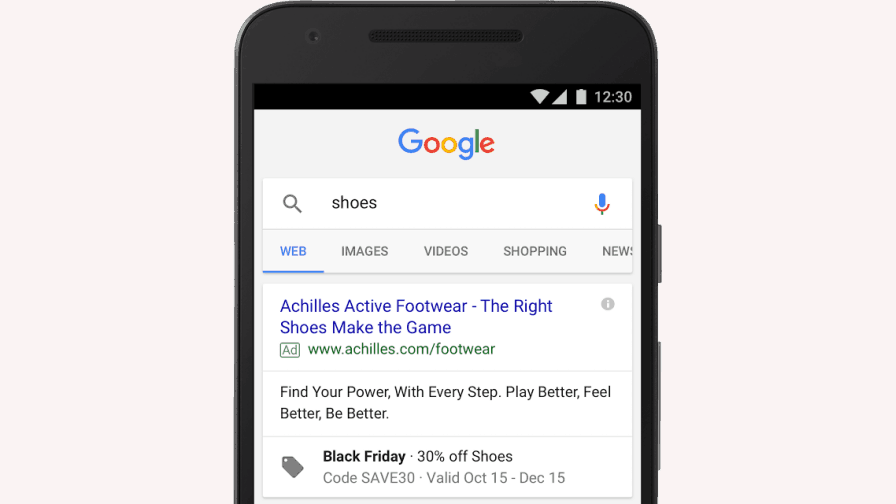With retail offers skyrocketing ahead of Black Friday at the end of this week, Google has stealthily rolled out an AdWords “redesign”, giving paying advertisers access to a number of new tools to catch “mobile-first” consumers during the holiday season.
Available in the Beta version of Google’s new AdWords upgrade, the updates include Promotional Extensions, allowing paying advertisers to target discount codes on mobile within their sponsored product listings.
This, according to Google’s blog Inside AdWords, makes it “easy for you to keep your promotions up to date without the need to create new ads”, and frees up advertisers’ placements for more unique content, “like brand terms or a clear call to action”.
Impulse buyers
Citing its own research that seven out of 10 internet users look for sales or discounts before visiting a store, Google claims its motivation for launching the product is to tap into consumers who are “more curious, more demanding, and more impatient than ever”.
“For example, if you’re a shoe store, you might use promotion extensions to show a ‘30% off’ promo code on all Black Friday orders,” reads the post; “You can also make these types of seasonal offers more prominent in your ad by selecting one of 12 occasions, like Black Friday or Back-to-school.”
One such brand that has already seen success with promotion extensions is fashion brand Torrid, which claims to have seen a conversion rate lift of 30%, owed to being able to effectively communicate promotions without sacrificing its “core message”.
Meanwhile, a company called Shoe Carnival lauded the tool for raising its ROAS (Return on Ad Spend) by 20%, while giving customers “even more reason to come to our site and buy”.
Encroaching
Unsurprisingly, the update has been met by a level of surprise and chagrin within the affiliate voucher code industry, with Google’s move threatening to cut out the “middlemen” voucher code publishers if it gathers further momentum.
If the announcement rings a few bells, it’s because the search giant made a similar move in 2015 when it launched its own set of comparison products which threatened to undercut business from price comparison sites. This invoked a response from the European Commission, which stated: “dominant companies have a responsibility not to abuse their powerful market position by restricting competition with others in markets where they are dominant or in neighbouring markets.”
Google, however, pulled its comparison products in early 2016, citing a lack of success and realigning its sights on AdWords innovations.
Alongside Promotional Extensions, other updates to AdWords include ad variations, which allows advertisers to split test variations in ad copy “across thousands of ads in just a few minutes”; custom intent audiences for its Google Display Network; and an Opportunities page, offering advertisers tailored “actionable recommendations, relevant insights, and best practices”.


